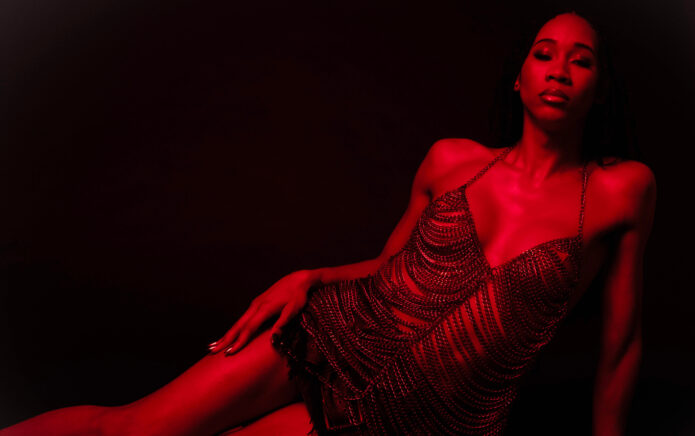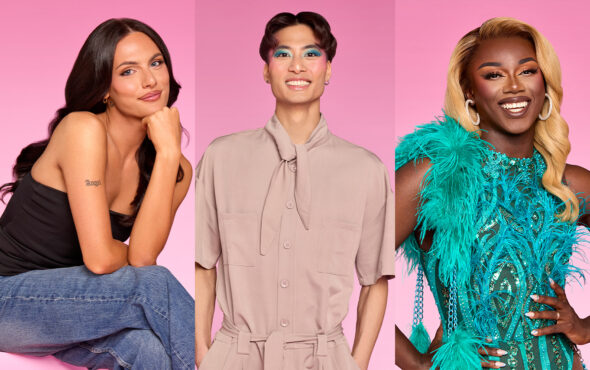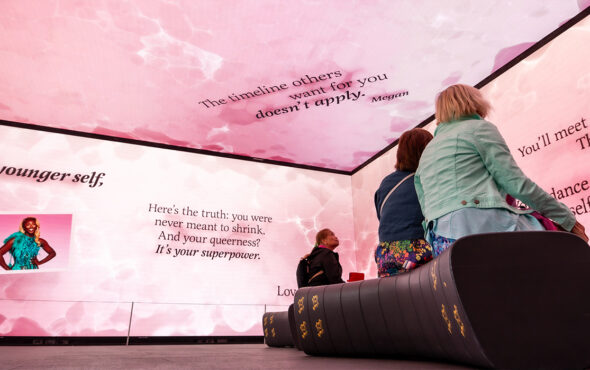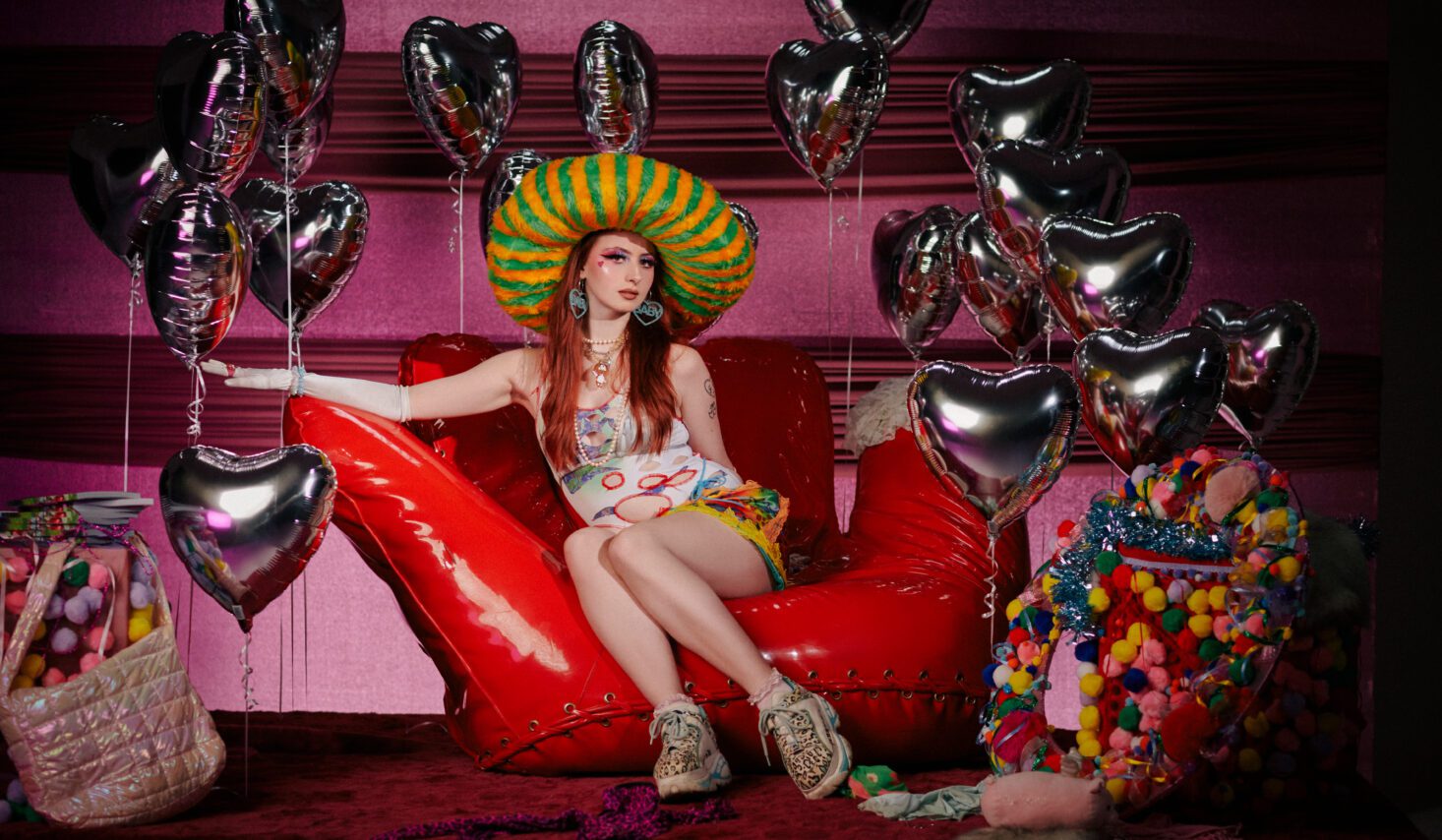
Our sense of style and how we present ourselves to the world can often mean more than just the clothes we wear. For some people, it’s often the only way that they know how to truly express themselves.
That’s something that 20-year-old Pippa (she/they), a creative and zinemaker from Manchester, feels. “As a neurodivergent person, sometimes it’s the only way I know how to express myself,” she says. “I often can’t understand or process my emotions and struggle to talk coherently with people so it’s one of the only things I feel completely in control of and sure about.”
Pippa’s style could be described as Camp Maximalism. Playful and filled with bold prints, patterns, textures and various kitsch items like soft-toys and keychains, it’s an aesthetic that has gained wide popularity with young people online. “I love the reclamation of the bimbo and hyper-femininity,” Pippa adds. “I also love renaissance style, lots of ruffles and bits but I don’t dress that way too much – there’s not enough colour for me but I love it on other people. I also really identify with riot grrrl in the sense of morals and music. I think so many aesthetics are inherently political, especially in queer communities.”
Pippa’s not wrong. Among queer communities, our style is often in response or rejection of traditional gender norms. Meanwhile, our position as “outsiders” in a cis-heteronormative society can provide LGBTQ+ people with a sense of freedom and acceptance when it comes to self-expression through our aesthetics and what we chose to wear.
For Pippa, being autistic is an added layer of why self-expression is so important. “I feel my appearance has more to do with my neurodivergence and how I enjoy the world and myself, in a sensory way,” she says. “I suppose I just love that my personality is always on display.”
However, given Pippa’s eclectic and often indescribable aesthetic, it can be hard to find things that resonate with her. Now, though, that pursuit has been made all the easier with Google’s new search feature that helps you to ‘search what you see’ when building your sense of style and personal identity with different aesthetics, unlocking your creative potential. Instead of searching with words, all you need to do is use your camera, or use a screenshot of something you see online, and Google will find a match or offer up similar items. For Pippa, this has become an important tool when it comes to finding inspiration for her style so we set her a challenge to style her own set using items she found using the Google app.
View this post on Instagram
To find out more, we spoke to them about why they were drawn to the Camp Maximalist style, how they find inspiration in their childhood, acceptance among the queer community and why it’s time to challenge stereotypes about neurodivergent people.
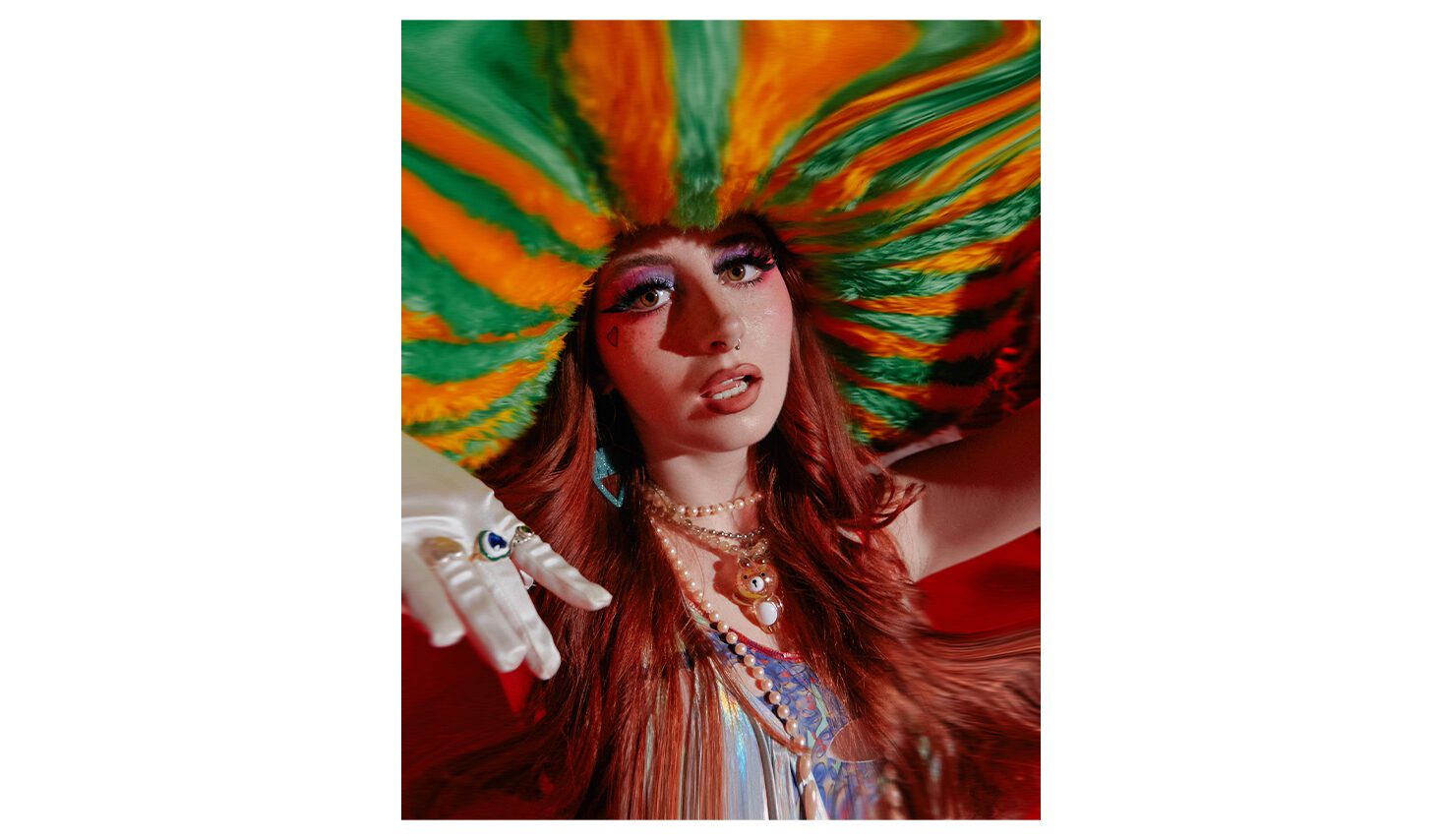
Hi Pippa. What initially drew you to the Camp Maximalism aesthetic?
Honestly, I don’t think you can really seek it out. You just kind of find yourself there one day. It definitely develops when you accept yourself more and start showing that in your appearance. Loving yourself, letting yourself enjoy what you enjoy and having fun with fashion can change so much about your appearance. I’m a very visual person and experiencing life in this way makes me very happy, and genuinely is a big source of my well-being and sense of self.
How would you describe Camp Maximalism?
Wearing whatever you want despite it not matching or making sense or being “fashionable” in the way that brands are presenting fashion at the moment. Dressing for your own joy. Usually a lot of colours, layering, novelty items, textures. It’s a very personal thing; it’s not something you can copy or it won’t be genuine or enjoyable for you in an everyday setting.
Why do you think you connect so much with it?
Being able to recognise people’s values and characters in their appearance is so exciting to me. Being autistic, I find it so hard to read people so the way you present visually can be the most important thing to me. The rejection of what we’re meant to be brings a lot of these communities together.
How do you find inspiration?
Mostly from childhood aspects or special interests – I’ve been really excited by bugs recently. It’s just seeing potential in things that you see. I feel when you’re really dressing for you, you don’t take as much inspo from other people’s aesthetics but from the individual pieces. Recognising what is a cool aesthetic versus what’s your aesthetic can be really hard, but that’s how you’ll feel right within yourself.
How does Google help you express your creativity in your day-to-day life?
A lot of the clothes I like are hard to describe or often one of a kind so being able to use Google’s new search feature makes things so much quicker and easier for me and saves me so much time scrolling.
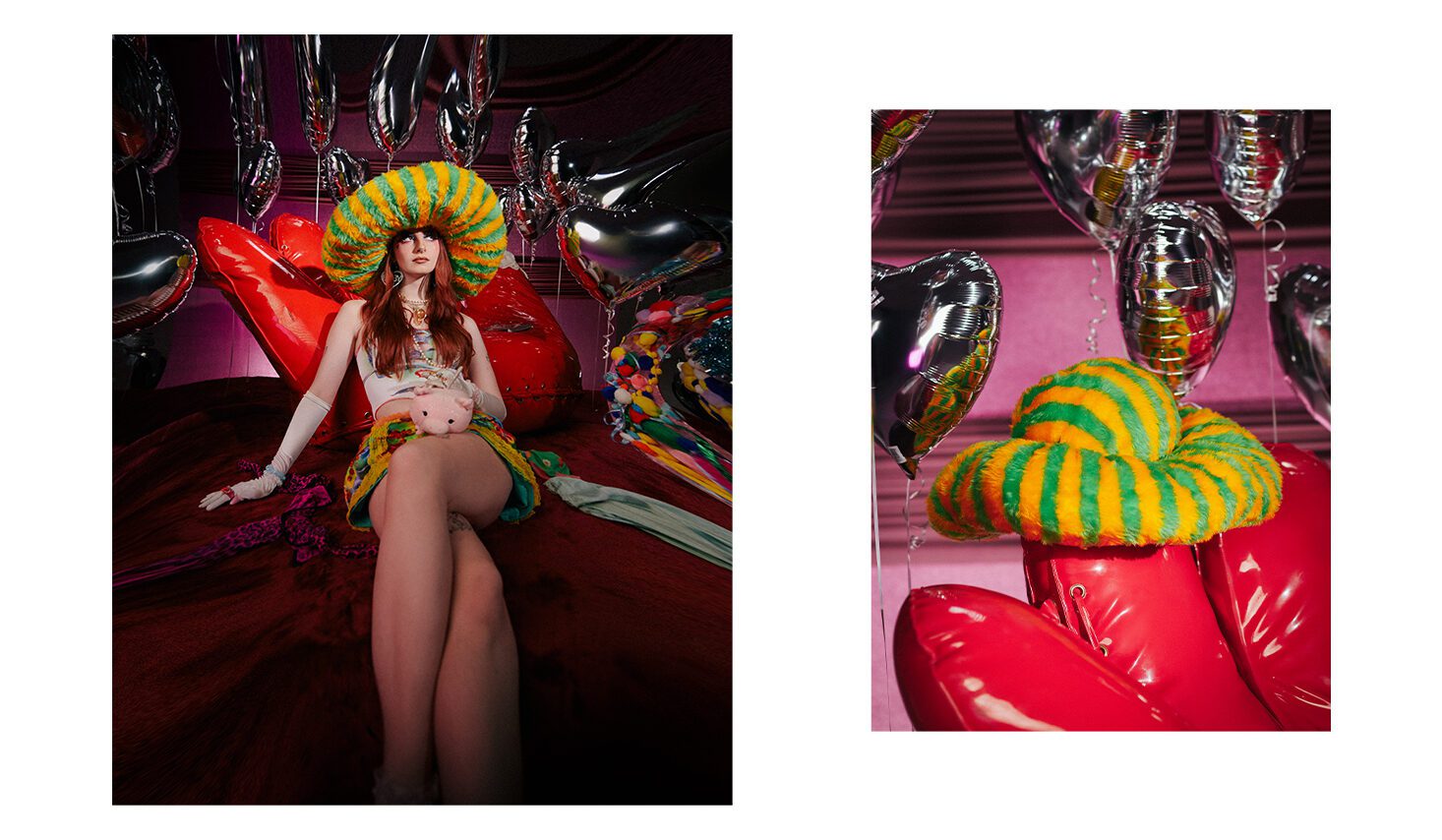
How would you say that Camp Maximalism helps you express your identity as a queer person?
I don’t really see it as expressing myself as a queer person but just expressing myself and my queerness is just a part of that. I feel my appearance has more to do with my neurodivergence and how I enjoy the world and myself, in a sensory way. I suppose I just love that my personality is always on display. I always am me whether you see me across a room or it’s a 1:1 conversation. Being autistic can make it hard for me to interact with words so I like giving as much of the genuine me as possible through my appearance.
How do you think we can all challenge stereotypes about neurodivergent people?
Remove all expectations of what you expect them to look or act like. Especially in women. We are raised to be pleasant to other people, so most of our struggles are inside and a lot of the time we’re just acting how we’re taught to act as women: polite, shy, smiling. It’s all learnt behaviour.
I know you make zines. How did you get into that?
I made my first zine when I was 16. I’ve always been super into photography but felt like once the shoot was over, it was lost in the memory card. I wanted something physical to celebrate my work and share it. I’ve always been a bookworm and I value physical more than digital since I can process it better, so I made my first one and whenever I had enough content, I made another until it became established enough to create one for the demand.
Why do you think living authentically is important for LGBTQ+ people?
Sometimes, I think we’re some of the only people living authentically. You open yourself up to so much pain and danger but you’re truly free. I don’t think many people are truly free and putting yourself on the table so vulnerably is the bravest and most empowering thing you can do.
What advice would you give someone wanting to express themselves more?
What does your inner child want you to wear? The self-consciousness won’t last; it’s worth the first week of fear to be free in yourself.
To get closer to the styles you love, try the Google app here.
Search results on the Google Search feature may vary depending on visual matches.
